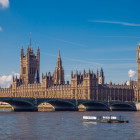Reforms to The Town and Country Planning (Use Classes) Order 1987
Sarah Harris, 1st September, 2020
New Use Class ‘E’ provides greater flexibility to change premises use without the need for planning permission.
What are the changes?
New Use Class E
From 1 September 2020, amendments to the Town and Country Planning (Use Classes) Order 1987 increase flexibility to change the use of premises such as shops and offices to a different use without the need for planning permission.
Use Classes A1 (shop), A2 (financial and professional services), A3 (café or restaurant) and B1 (office, research and development, industrial processes suitable to be carried out in a residential area) along with parts of D1 (clinics, health centres, creches, day nurseries, day centres) and D2 (gymnasiums and some indoor recreations) have been amalgamated into new Use Class E.
Planning permission is not required where the existing and proposed use falls within the same use class. Creating one broader use class which incorporates several of the existing use classes therefore means that a premise’s use can be changed to a greater range of alternative uses without requiring planning permission. It is, however, important to note that whilst a change of use may not require planning permission, if building work is required for the new use, planning permission may still be necessary for that work.
Sui Generis Use
Pub and wine bars (previously incorporated within Class A4), hot food takeaway (Class A5) and cinemas, concert halls, bingo halls and dance halls (Class D2) will become sui generis uses. This has the effect that a change of use to or from these uses will require planning permission every time, whereas previously it may not have done.
Why have these changes been made?
These changes aim to make it easier for vacant premises in town centres and on high streets to be re-occupied without the need for planning permission. The changes also provide businesses with greater flexibility to adapt and diversify to meet changing demands in the current economic climate.
When do these changes come into effect?
The new Use Classes Order provisions take effect from 1 September 2020 in England subject to transitional and savings provisions applicable during what is termed “the material period” between 1 September 2020 and 31 July 2021.
During the material period, any planning permissions, permissions in principle and reserved matters approvals submitted prior to 1 September 2020 should be determined by reference to the previous use classes.
Any references to uses or use classes in article 4 directions which have already been made will continue to be read as previous use classes.
What do these changes mean for you as a landlord or as a tenant?
When entering a new lease of premises, landlords need to consider whether they are happy for tenants to take advantage of the new flexibility afforded by Class E. Since Class E is an extremely broad category, it is likely that landlords will look to restrict the tenant’s use of the premises in order to ensure effective property management; if this is the case they need to include restrictions within the user clause of the lease, however this restrictive approach will have a negative impact on rent review and property valuation.
When entering a new lease as a tenant, you need to ensure the user clause is not too restrictive for your intended use of the property. The ability to change easily between uses, or the possibility of operating mixed-use premises, will likely be attractive to a potential tenant.
How do these changes affect current leases?
Whether you can benefit from the new Use Class E will depend on the drafting of your existing lease. If the permitted use under the lease fails to refer to the use classes order, or it refers to a use within a class of the use classes order “as at the date the lease was entered into”, then there is no change to the use permitted by the lease and your existing lease will continue to operate under the provisions as they were prior to 1 September 2020. However, if the use permitted by the lease refers to the use classes order as amended or replaced from time to time, the changes in the use classes order may impact the use permitted by the lease. Furthermore, if an assumption in the rent review provisions makes reference to an old use classes order, this may have important implications on the rent payable at a review.
Get in touch with one of our specialists today…
We are advising clients on the issues raised in this article - if you think we can help you and your business then please don't hesitate to get in touch with one of our specialists today.
Contact:
Sarah Cawkwell on 01482 324252 or via email: sac@gosschalks.co.uk
or
Hannah Pullen on 01482 324252 or via email: hap@gosschalks.co.uk
You can find contact details for our whole Commercial Property team by clicking or tapping here.


